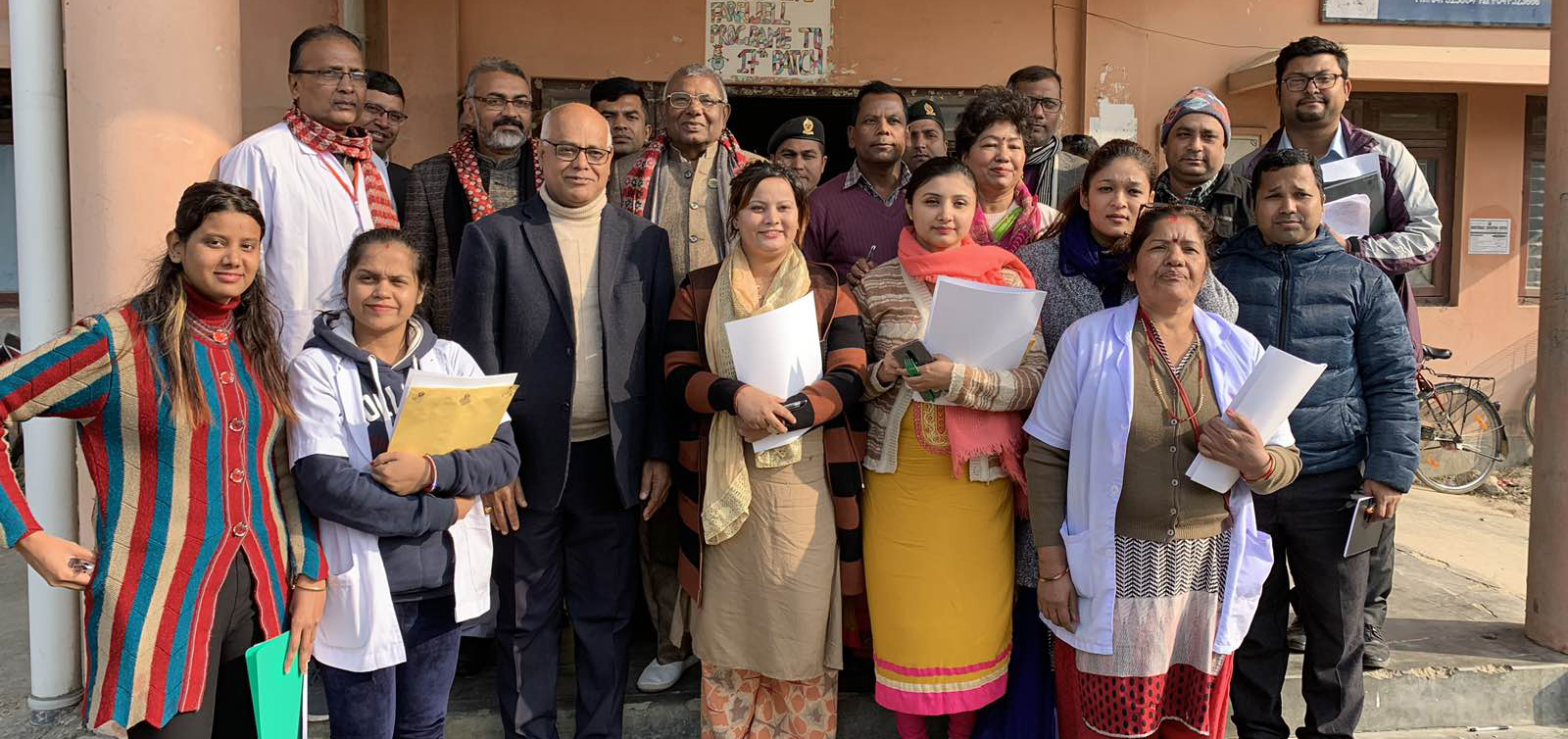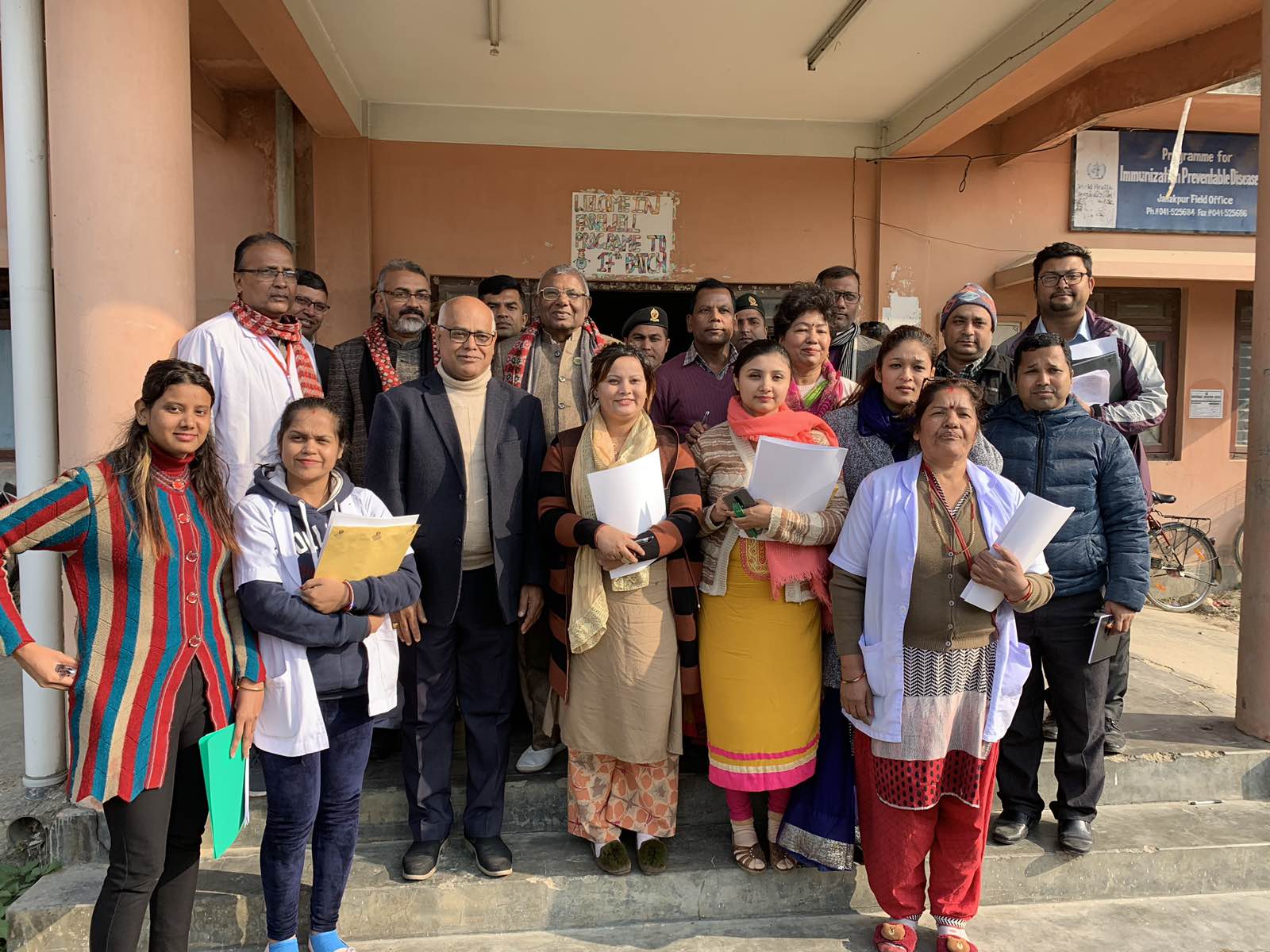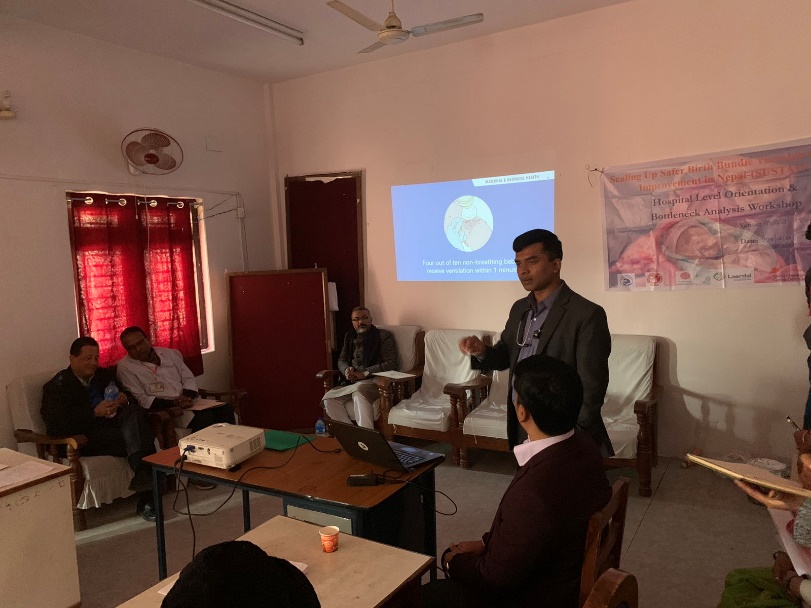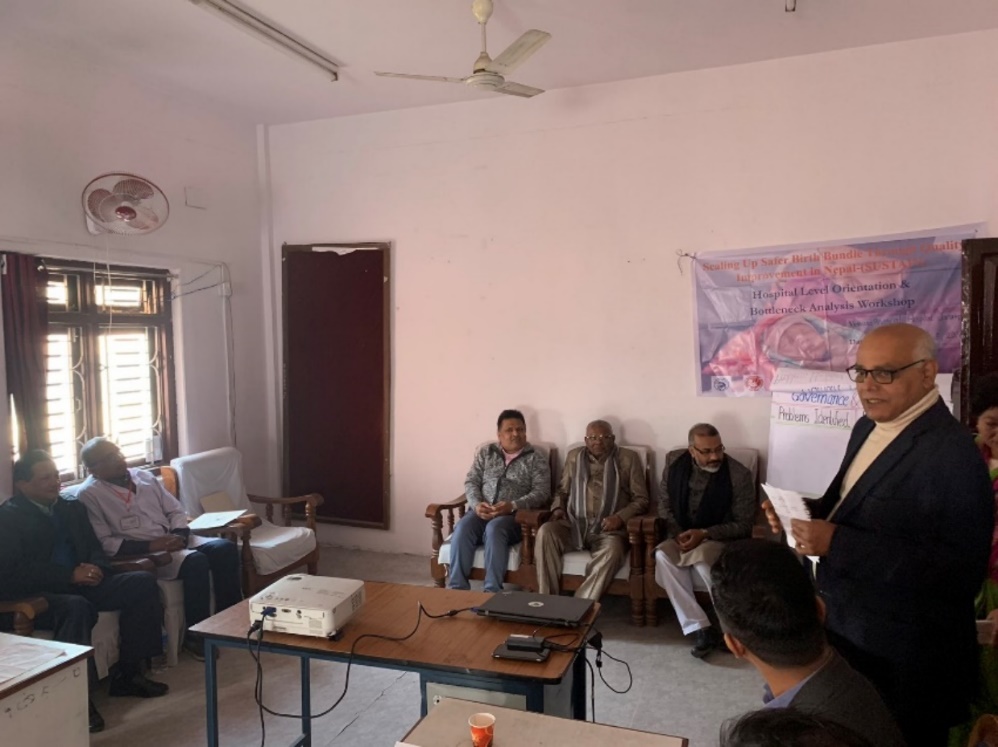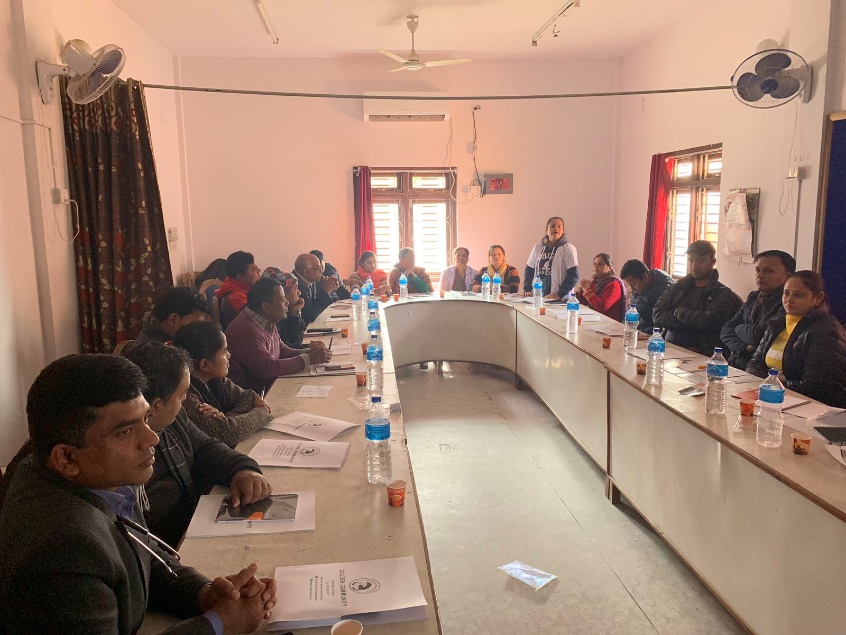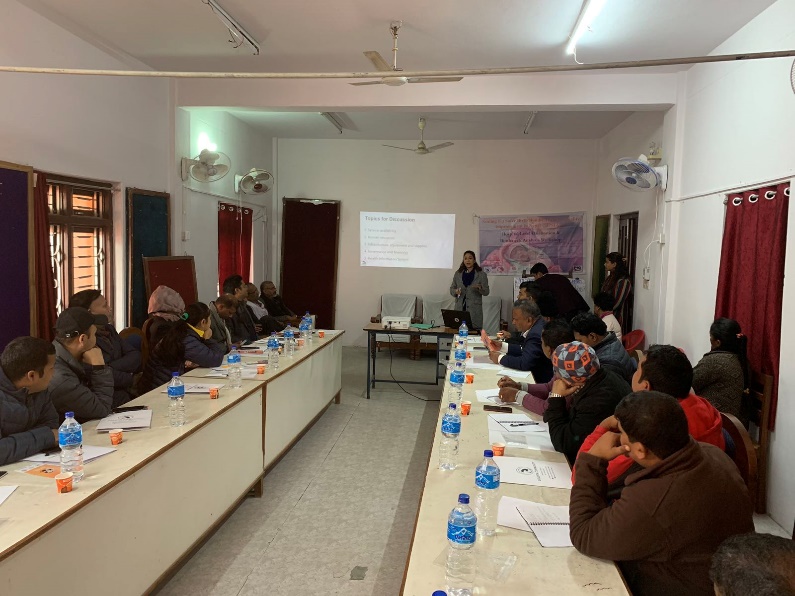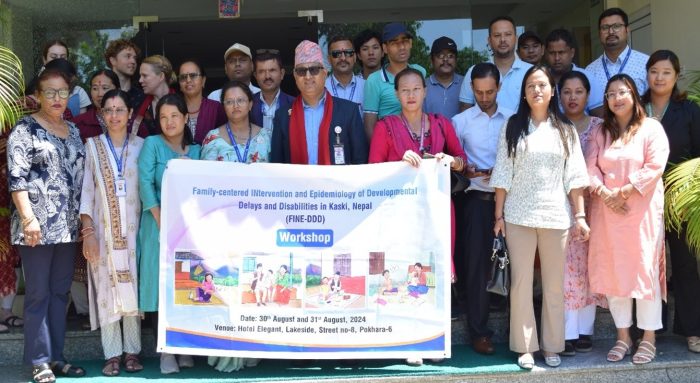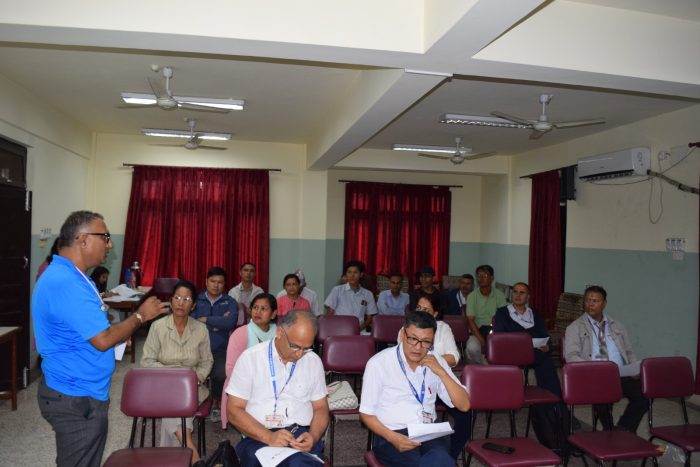Hospital level Orientation
Scaling up Safer Birth Bundle Through Quality Improvement in Nepal (SUSTAIN)
Background
Scaling Up Safer Birth Bundle Through Quality Improvement in Nepal (SUSTAIN) is a set of quality improvement interventions as well as technologies aimed at improving intrapartum care. The project is being implemented in 8 public hospitals across Nepal, in coordination with Nepal Health Research Council (NHRC), Uppsala University, Laerdal Global Health and grant support from Grand Challenges Canada (GCC). SUSTAIN is a research project aimed at improving neonatal care outcomes through quality improvement (QI) initiatives.
Under the SUSTAIN project, the Helping Babies Survive (HBS) Training Package has been developed by National Health Training Centre (NHTC) in collaboration with Nepal Pediatric Society (NEPAS) and Golden Community (GC). The package includes – Participant Handbook, Reference Manual and Trainer Guide. As part of the SUSTAIN project, the training package will be crucial incapacitating healthcare workers in the project hospitals for newborn care service delivery. Based on the training package, a four-day training programme has been developed which incorporates care of newborns from birth until 28 days after birth. The programme includes – Essential Care of Every Newborn, Care of Small Babies, Helping Babies Breathe and Plan-Do-Study-Act (PDSA) model which have been built into the four-day program.
As part of the SUSTAIN project, one day Hospital level orientation has to be organized in each implementing hospitals. Orientation is an important part of the introductory stage in the process of new assimilation and informing on the new program being implemented for improving efficiency.
Rationale
Orientation to the stakeholders at the site about the program being implemented would help them understand the importance of the program and are well acquainted for the implementation.
Objectives
This program was organized to orient the stakeholders on the implementation of SUSTAIN
Date and Venue
At the premises of Provincial Hospital, Janakpurdham a one-day hospital level orientation was organized on 24th December, 2019.
Participants
There were altogether 40 participants from the Provincial Hospital, Ministry of Social Development, Provincial Directorate and Provincial Logistic Management Division. The participants included Medical Superintendent, Head of the hospital development committee, Obstetricians, Pediatricians, Nursing Matron, Nursing in-charges of maternity and sick newborn care units and staff nurses working in these units.
Bottleneck Analysis
Scaling up Safer Birth Bundle Through Quality Improvement in Nepal (SUSTAIN)
Background
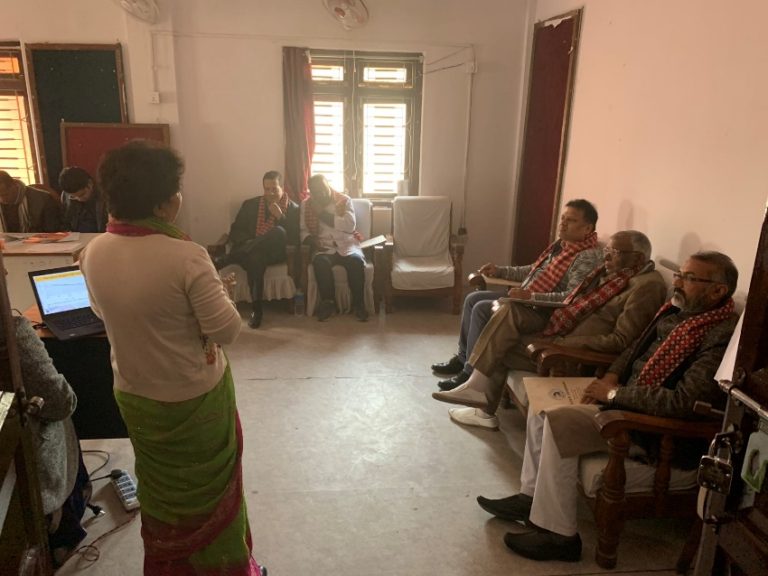
The SUSTAIN package is a bundled Quality Improvement package to empower health care workers to provide improved care and to review its provision during the intrapartum and immediate postpartum periods. The interventions include training and technology for intrapartum monitoring, neonatal resuscitation, and a supporting system to review the implementation of these measures.
As part of the SUSTAIN project, a one-day bottleneck analysis workshop has to be organized in each implementing hospitals. Identifying the bottlenecks that can cause slowdowns and disruptions of work is the first thing to do in implementing the services. A bottleneck analysis is a detailed process of gathering information about the work flow, such that data is gathered about the steps in the process where work is bottlenecking. Thus, performing bottleneck analysis can help identify the cause of a bottleneck and lead to potential solutions to get work flowing at a more even rate.
Rationale
Performing bottleneck analysis is necessary to identify bottlenecks that is causing problem and to learn about the processes where a bottleneck is likely to occur in the future. Based on their experiences, interactions and learnings, it will provide important information about how things are done, and how they can be improved. Completing the bottleneck analysis is just the first step in a longer process of improving the efficiency of the work. It will thus help us effectively implement the program by preventing these bottlenecks to occur in the future.
Objectives
- To identify and discuss on the prevailing road blocks in perinatal care practices in the hospital.
- To ensure accountability of the perinatal care provided in the hospital.
- To conduct the readiness assessment before implementation of the program.
- To improve accountability and needed support from hospital management for perinatal quality improvement.
Date and Venue
At the premises of Provincial Hospital, Janakpurdham one-day bottleneck analysis was organized on 24th December, 2019 at SBA training hall.
Participants
There were altogether 40 participants from the Provincial Hospital, Ministry of Social Development, Provincial Directorate and Provincial Logistic Management Division. The participants included Medical Superintendent, Head of the hospital development committee, Obstetricians, Pediatricians, Nursing Matron, Nursing in-charges of maternity and sick newborn care units and staff nurses working in these units.

